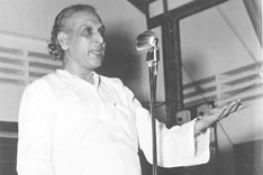History - எங்கள் வரலாறு
The Tamils Representative Council (Tamilar Pirathinithithuva Sabai) was founded as a non-profit social organization on 1 Aug 1951. It was initiated by Mr. G Sarangapany, a renowned Indian Community leader and a few well-known personalities who got together and formed a council to unite the Tamils and the Tamil organizations that functioned on a sectarian basis (Hindus, Muslims, Christians or Buddhists) in Singapore.
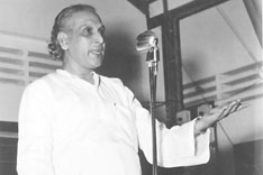
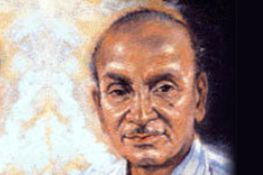
In 1982, TRC launched an island-wide educational assistance scheme using schools as Tuition Centres on Sundays, with the help of the Ministry of Education. It also attracted hundreds of volunteers who sacrificed their weekends to coach these children in the core subjects, English, Mathematics, Science, and Tamil. Soon, TRC came to be regarded as the apex organization as it continued to extend its tuition services to thousands of children. Its activities then extended to cultural and youth activities, and national dinners, and all of these were organized regularly and on a national scale.
TRC also networked with government agencies and received all forms of other support ranging from sharing of information on the top Indian students at PSLE, GCE “O” and “A” levels so as to receive TRC’s Excellence Awards and to motivate other children; institutionalizing the teaching of Tamil as 2nd language in premier schools like Raffles Institution, and rescheduling key examination dates to avoid clashing with major festivities so that Indian children are not in any way disadvantaged.
This brought TRC to its next phase where it set up separate funds for Education, Culture, Building, and Administration to allow the public to support these initiatives by way of membership and contributions through GIRO, a regular and convenient way of building the funds. From the $29.50 cents that TRC had when Mr. G. Kandasamy started in 1980, TRC's funds now stand at more than $800,000. Its membership grew - the number of organizations affiliated with this central organization now stands at 36 and the life and ordinary members have exceeded 1000.
In 1994, TRC then formed the TRC Multi-Purpose Co-operative Society, as an economic arm, to encourage Indians and specifically Tamils, to thrift and to offer low-interest loans to its members to support them. Mr. P Kesavan took over from Mr. Kandasamy in 1994 and served as its President until 1999.
In 2000 Dr R. Theyvendran, took over the leadership and brought the organization to the next level by creating closer links with the grassroots and the recognition of community organizations to synergize their independent efforts to achieve the same goals. TRC continued to be actively involved in a multitude of activities in its continued efforts to promote the Tamil Language, enhance the economic and social status of the Community and improve the educational performance of our students. TRC has continued awarding bursaries to about 200 needy students annually. Each year about $25,000 is raised and presented at the Joint-Bursary Awards ceremony held together with SINDA and SIET. To date, more than $500,000 has been given out to more than 2000 needy students.
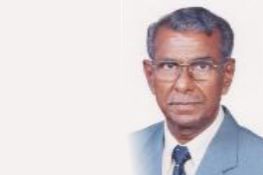
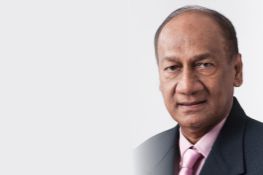
With the advent of SINDA in 1991, TRC scaled down its involvement in tuition activities. It refocused its efforts on motivating students and parents and taking up the issue of Tamil education. TRC recognizes top Indian students at PSLE, GCE "O" and "A" levels by awarding them the TRC Academic Excellence Awards. Such recognition serves to motivate other students to excel. TRC has also taken up the gauntlet in having dialogues with Government organizations in rescheduling key examination dates to avoid clashing with major festivities; promotion of Tamil Language, changes to the Mother Tongue policy, and issues that face the Tamil community.
Some of the events organized by TRC :
- Annual National Day Celebrations
- Thamizhar Thirunaal Celebrations
- National Schools Tamil Language competitions
- Tamil Language Forums
- Bursary Awards for primary school children
- Academic Excellence Awards for Top Tamil Students in PSLE, GCE O and A Levels
- Tie-up with Management Development Institute of Singapore for Scholarships
- National Tamil Debate Series (Sorpor) for Primary Schools
- Feedback sessions with SINDA, MOE, MICA, MCYS on various issues such as Tamil Community, National Exams Timetable, Tamil Language & Tamil Youths
- Joint Programs with SINDA, Narpani, IMH, MDIS etc.
To raise the social status of the Tamils, TRC continues to foster close relationships with SINDA, SIET, STTU, TLC, and PA. In partnership with MDIS and MMI, TRC has also nominated deserving children of its members for scholarship awards to further their studies.
2016 was a further milestone in TRC's history. In September 2016, Dr. Theyvendran stepped down as the President and handed over the leadership to V. Pandiyan and Dr. Theyvendran did so as he wanted the younger generation to take over and continue the efforts to serve the community. He will continue to serve as the Immediate Past President.
Mr. Pandiyan has been the General Secretary of TRC and has served under Mr Kandasamy, Mr Kesavan and Dr Theyvendran. As such he comes with much experience and organizational skills together with the support and respect of many Community Organisations. Mr. Pandiyan also sits on the Tamil Language Council and the Tamil Language Learning & Promotion Committee. He is also the Chairman of the Bishan Indian Activities Executive Committee.
The changes in leadership see a younger group of professionals being given the mandate to bring TRC into the future. Members and the Community can rest assured that TRC under fresh, youthful, and vibrant management is ready for the challenges ahead as it undertakes to uplift the Tamil-speaking community as a whole! TRC recognizes the increasing roles of other like-minded organizations like SINDA, to serve the well-being of Indian Singaporeans, and now focuses on what each does best so as to optimize the resources among Indians. It will continue in its mission to uplift the educational, economic and social status of the Indian Tamil Community.

